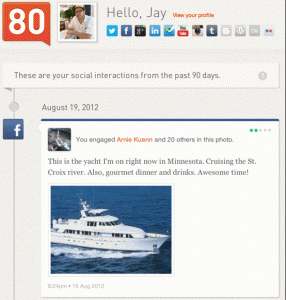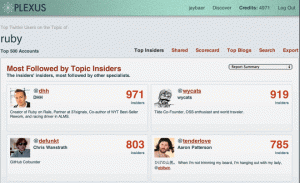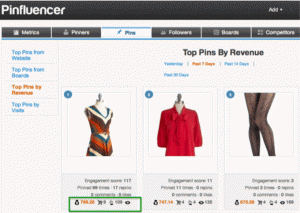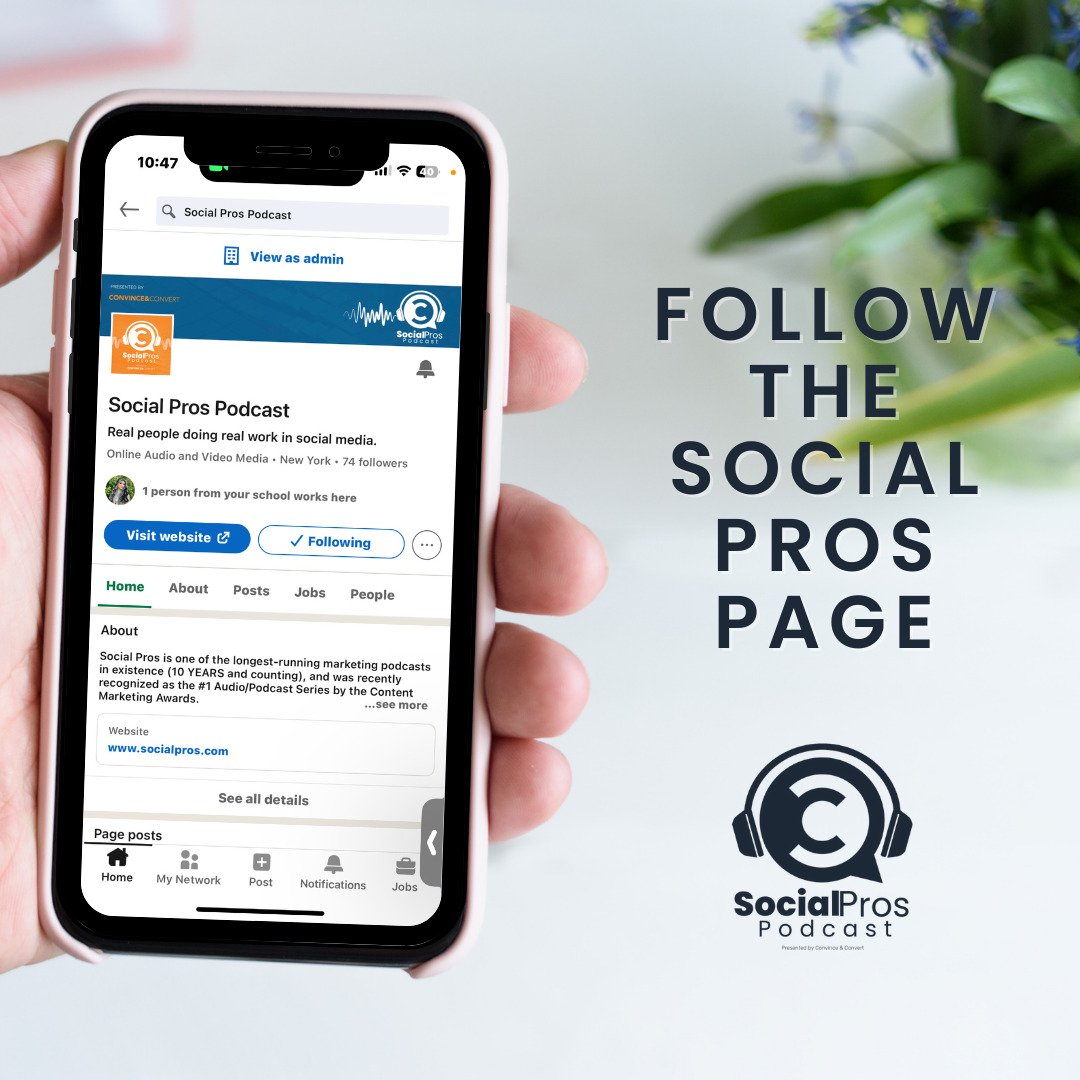
 Big news last week as Klout announced a significant overhaul of its influencer identification platform. Several new features are being rolled out to improve accuracy and add transparency to the much-discussed and oft-maligned system.
Big news last week as Klout announced a significant overhaul of its influencer identification platform. Several new features are being rolled out to improve accuracy and add transparency to the much-discussed and oft-maligned system.
The most notable changes are:
- An increase in ranking factors from approximately 100 to 400, meaning there are vastly more activity and behavior types comprising your Klout score.
- The first forays into trying to account for offline influence, using Wikipedia pages and mentions as an important signal (since they are harder to fake and game than most social media).
- Significant increases in transparency, as a new social interactions ticker shows what you published and who it impacted. (interesting to note that Twitter’s new “you must make your feeds look like Twitter.com” edict last week may have made Klout’s new interface DOA).
Klout (and its main competitor, Kred) are trying to determine how influential a person is in comparison to other persons, and as a secondary data point how influential that person is about particular topics. Both systems mix and combine a lengthy list of circumstantial influence ingredients and then knead to produce a unified mathematical dough that assigns a single, 1-100 number (1-1,000 for Kred) that serves as a literal and figurative measuring stick of influence.
Fair enough. Very easy to use. Very easy to understand. Very easy to integrate into other applications. But as I think about the future of influence, I wonder if maybe the future is in specific influence scores, not general ones?
Your Influence is Channel Specific not Evenly Distributed
I’ve said this before, and I’ll keep saying it. The biggest problem with this entire field of inquiry is that it often confuses “influence” and “audience”.
Influence isn’t about eyeball aggregation, and what businesspeople care about (or should) is how effective the person in question is at DRIVING ACTION amongst the people to whom they are connected. Using influencers to solely drive awareness is as cost-effective as a Paula Deen fitness camp. The key to effective use of influencers is their ability to cause behavior, and that ability varies not just by topic, but even more so by platform. The new Klout is improved on this front, as it overweights action (clicks and other engagement) and underweights activity (tons of pointless tweets).
Nobody has evenly distributed influence. Nobody. Whether it’s Twitter, Facebook, Instagram, Pinterest, a blog, YouTube or any other corral, everyone has places where they are more connected and more capable of moving the behavioral needle. Sometimes this is evolutionary, stemming from how and why and when you joined/embraced a particular network. Other times it’s by choice, as with Chris Brogan publicly eschewing Linkedin and Facebook in favor of Google + and Twitter alone (which is one of the reasons I now have a higher Klout score than Chris, which of course does not reflect reality).
Klout itself is visually acknowledging the divergent and network-dependent nature of influence with their new pie chart that shows where influence is accrued. In my case, 49% of my total Klout is via Twitter, with Facebook at 40%, and Linkedin at 5%. They of course have always possessed this data, but are now showing it as part of the tool.
Klout says that I am more capable of getting people to click, et al on Twitter than I am on Linkedin. That is true, and I can look at the analytics from my Buffer and Argyle Social accounts to prove it. So if a company is evaluating me as a potential outreach target, shouldn’t they want to work with me only on Twitter and Facebook? Is focusing on channel influence more efficient and effective than worrying about baseline influence?
The Rise of Channel Influence Analytics
If you believe channel influence is important, there is an emerging and expanding crop of analytics companies that provide excellent insight into the situation.
Twitter Influence Analytics

On the Twitter side, you’ll find Plexus Engine (currently in beta) which instantly gives you a list of topical influencers and allows you to create a list, custom search engine, and blog feed in a single click. It even has “flash cards” in the mobile version to help you learn who’s who on Twitter for a category.
You’ll also find Peek Analytics, which provides exceptionally deep data on individual Twitter accounts and hash tags. Very useful for head-to-head comparisons. For example, using Peek I can determine that my friend Jason Falls has 3.1 times the expected concentration of public sector Twitter followers, compared to my 1.6 times the concentration. This could be because Jason worked in higher ed for many years, and my own government career was just 4 months in duration and happened pre-Internet. Or maybe he’s just a .gov darling. Don’t know the cause, but Peek Analytics shows you the deep data around income, education, age, and location.
I’m also interested in Brandfluencers which ties Twitter data to your Google Analytics account to determine who in the Twitterverse is driving the most visits and pageviews to your website. From the perspective of focusing on ACTION not just audience, it’s a simple yet terrific tool. In the past month, the top drivers of traffic here to Convince & Convert (other than me, naturally) are Lisa Barone, Mark Schaefer, Unbounce, and Radian6. Thanks all.
Pinterest Influence Analytics

Given many pins’ inherent tie to products, e-commerce, and potential revenue, the category of Pinterest influencer analytics is fascinating and booming.
I’m a big fan of Pinfluencer, which provides shockingly valuable data to its e-commerce and retail customers (like Zappos) about which pinners are driving the most re-pins, clicks, and even hard revenue. In fact, Pinfluencer CEO Sharad Verma tells me that some e-commerce companies are using real-time Pinfluencer data to help determine which products to feature on their home page, and even product inventory levels.
Chief competitor Curalate offers similar functionality.
Blog Influence Analytics
One of my favorite online tools of any type, and software I use frequently with our agency clients is GroupHigh, which I believe to be the best blogger search and contact tool available. If you need to find influential food bloggers in Tampa, Florida and then create a database with a record of when you contacted each of them, this is the tool.
Lots of other software (Cision and Vocus, in particular) offer some form of blogger search and outreach capabilities, but GroupHigh is purpose built for bloggers (no traditional press included) and is a snap to use.
Depth vs. Breadth of Influence Scoring
That list of tools is just scratching the surface. There are many, many more with others appearing weekly – or so it seems.
I’m not a Klout hater. Quite the opposite, actually. (Read my post “why critics of Klout are missing the big picture“) But if we really care about behavior, not the ability to drive awareness, perhaps Klout would be better served by creating several network-specific measures of influence instead of a single score influence gumbo?
Would you interested in a separate Klout or Kred score for Twitter, Facebook, Linkedin, Instagram, and so forth? Or is the one-score-fits-all alternative that currently dominates the influence discussion the best option? I’m continuing to ponder this question, and your thinking is most welcomed below.
(disclosure: I am an investor in Plexus Engine and Buffer, and Argyle Social is a sponsor of this site)


